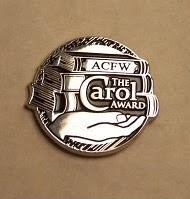Pretend You Are on an Airplane – an excellent article on how to be more productive in your work day.
How to Handle Criticism – This is the bane of a writer’s existence. So how do you handle it when others criticize?
How Not to Write a Book Review – Three golden rules for those who review books.
Before You Send Another E-mail – Read this post by Seth Godin. For example: “If this e-mail were to cost me 42 cents, would I send it?”
Are You a Perfectionist Writer? – Jeff Goins has some quality advice about perfectionism.




